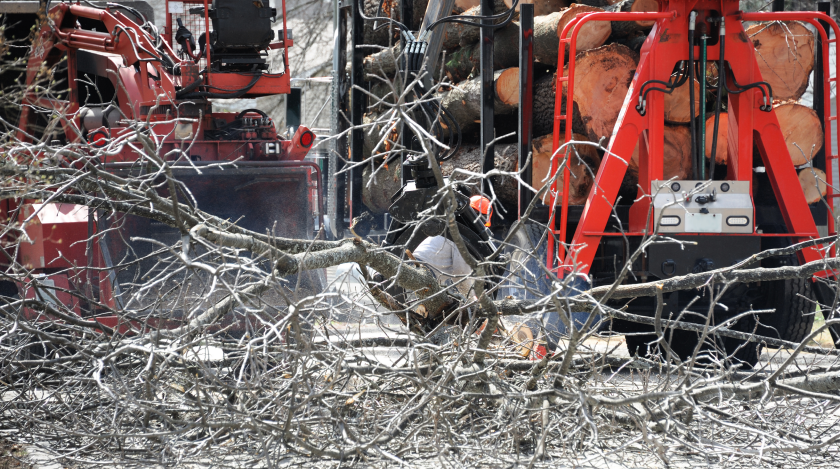Bridging The Workforce Ecosystem: The Power of True Interoperability
We all know the frustration of running an outstanding learning program only to encounter challenges connecting talented individuals with available...
2 min read
Jeanette Pryor Jun 29, 2022 12:47:00 PM

In a scene from every administrator’s worst nightmare, a $636,324.20 bill for post-hurricane debris removal in Florida was just classified as ineligible for FEMA cost recovery.
Hurricane Michael, often called “the Forgotten Category 5,” was the fourth-strongest to make landfall in the U.S. When 350,000 evacuees returned home, they found 500 million destroyed trees, 72 tons of accumulated forest remains, and $25B in damages. Contractors worked to restore grounds for a month on one campus alone.
As the trees disappeared, removal fees mounted.
A different Sunshine State community successfully requested $218 M for debris removal including not only trees but hazardous waste.
Why was FEMA obliged to decline Public Assistance to one organization but grant full reimbursement to the other? How can public or private managers avoid cost recovery mistakes after a disaster?
While contractors in both locations worked thoroughly, one subcontractor in the first case misunderstood critical FEMA guidelines regarding truck certifications and documentation exemptions. Administrators were also unable to share monitoring activity records.
.png?width=840&name=Hubspot%20Featured%20image%20(18).png)
During a recent Merit digital event, recovery experts and state emergency directors discussed the critical importance of reimbursement documentation following extreme weather events. Stan Ledbetter, SLS Division President for Response shared:
"(FEMA funding) is the lifeblood, honestly, of our entire industry. How FEMA goes or pays is where the response and the recovery happen."
How does FEMA decide where assistance is shared?
The detailed approval process states:
“FEMA makes public assistance available for debris removal from public and private lands when it is in the public interest and essential to saving lives, protecting public health and safety, or preserving property.”
“FEMA requires applicants to monitor all contracted debris operations to document this information and ensure that the contractor removes eligible debris. If the applicant does not monitor contracted debris removal operations, it will jeopardize its PA funding for that work.”
.png?width=840&name=Hubspot%20Featured%20image%20(16).png)
Chris Walker, former President of the Emergency Services Division at Merit joined Disaster Zone host Eric Holdeman to discuss post-disaster debris management.
Walker worked closely with those managing the cost recovery of catastrophic wildfires in California. He shared that all application success increasingly depends on sophisticated accountability and the ability to gather and share comprehensive, incident-specific data.
The continuous disaster cycle strains FEMA resources. Funding will be allocated to agencies that can prove work was accomplished by qualified, certified workers in the time and location claimed. Managers or county and state officials will partner with recovery specialists able to offer:
.png?width=840&name=Hubspot%20Featured%20image%20(17).png)
One year ago, shortly after the tragic collapse of the Surfside condominium in Florida, Miami-Dade County relied on digital credentials to fully document and track over 16,000 personnel shifts. The agencies later submitted over 1,500 FEMA ICS 214s to accelerate the entire cost-recovery process.
It is never too late or early to learn from those who were able to obtain assistance for their neighborhoods and businesses or avoid mistakes that may delay or prevent FEMA from reimbursing costly restoration.
Learn how to maximize your FEMA reimbursement here.
We all know the frustration of running an outstanding learning program only to encounter challenges connecting talented individuals with available...
Connecting learners and job seekers to meaningful pathways requires steady collaboration between education, workforce, and training agencies. When...
Merit and Associated Builders and Contractors (ABC) of Iowa have announced a partnership aimed at digitizing apprenticeship records and modernizing...